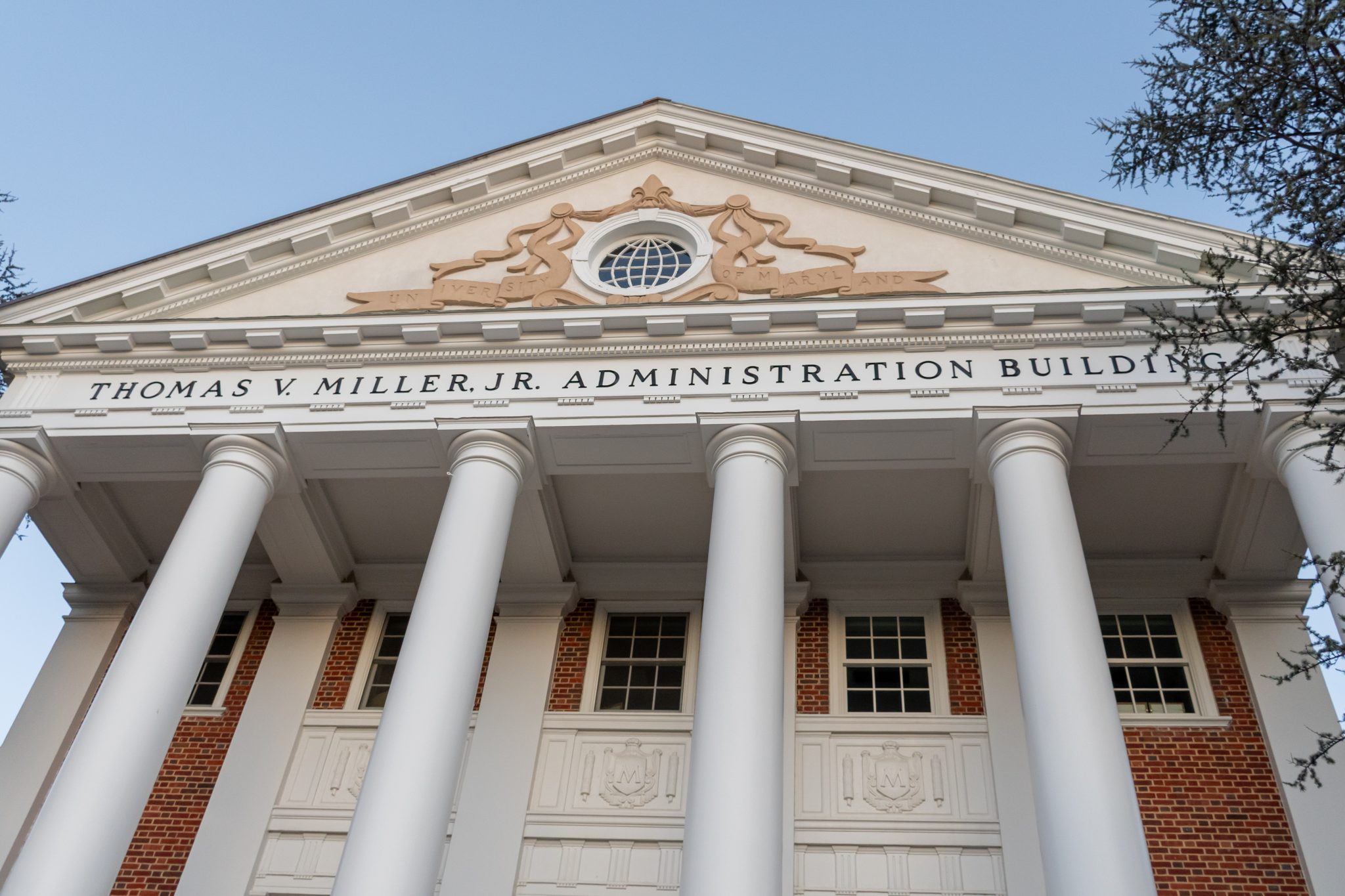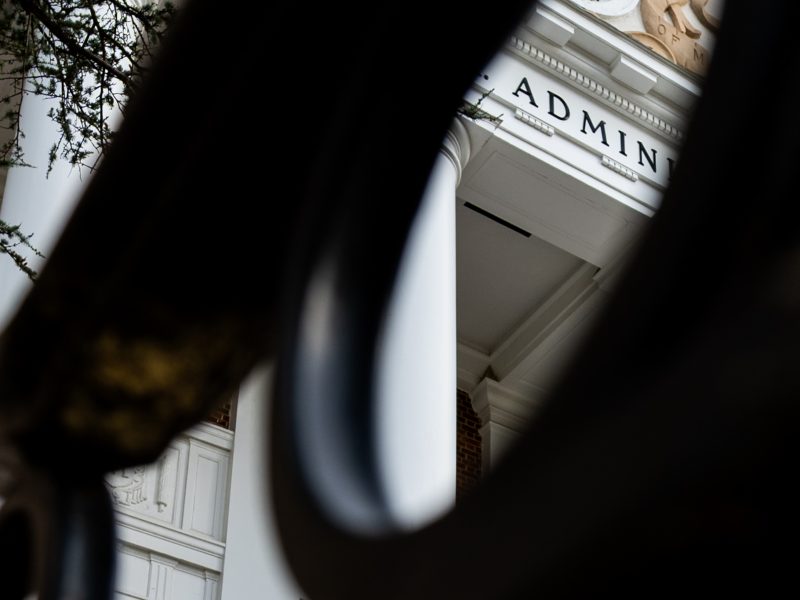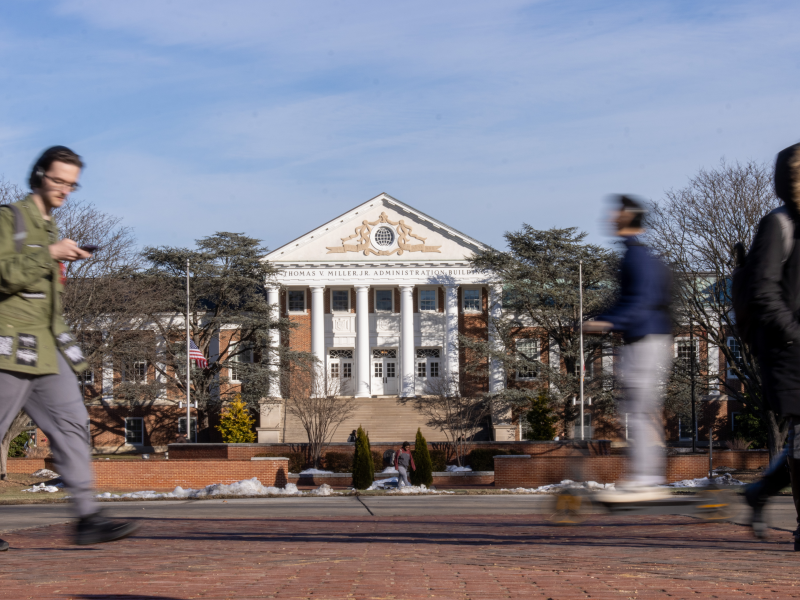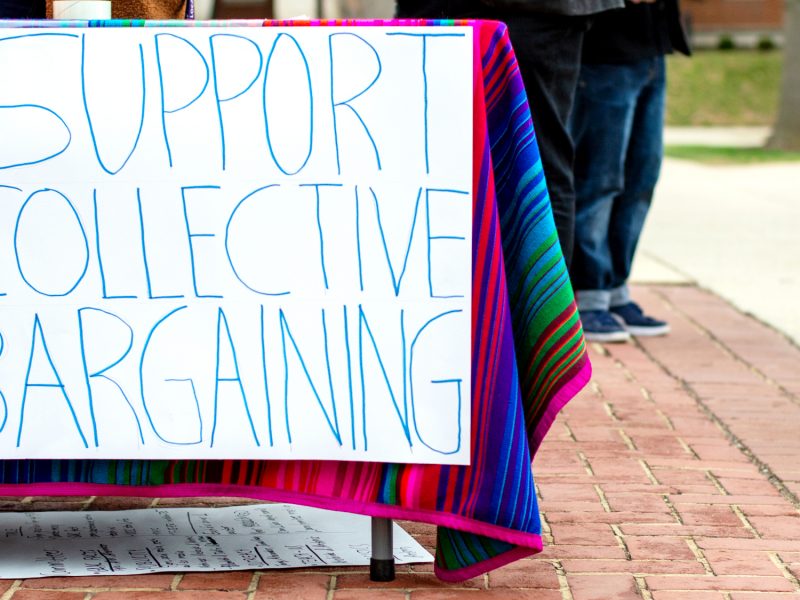CLARIFICATION: This column’s headline has been updated to better reflect the columnists’ perspective.
Views expressed in opinion columns are the author’s own.
From April 1 to 3, University of Maryland students will vote on an SGA referendum that calls upon the University System of Maryland Foundation and the University of Maryland College Park foundation to “divest from companies that … directly facilitate and enable state violence and repression, war and occupation, or severe violations of international law and human rights.” As faculty and staff at this university, we join the call for divestment.
While we do not vote in this election — undergraduate students are eligible to vote — we are invested in its outcome. As scholars, workers, educators and fellow members of this university’s community, we care about how our employer invests in corporations and funds that have an impact both locally and around the world. As members of Faculty and Staff for Justice in Palestine, an independent coalition of faculty and staff at this university, we are particularly concerned with the university’s complicity with the ongoing genocide perpetrated against Palestinians, all with U.S. material support and diplomatic cover.
In our current political environment, the federal government is attempting to place unprecedented constraints on educators and researchers, while actively punishing students and scholars who have spoken out against inequality, violence and repression. In this context, we note the particular importance of taking an institutional stand against corporations and governments that blatantly contradict the university’s stated strategic commitment “to advance the public good.”
We note with special concern that this university’s financial support for energy, security, defense, military and prison industries risks making it complicit in war crimes, destruction or theft of Indigenous lands, international law violations and environmental disasters. The current context of Israel’s mass displacement, land expropriation and targeting of civilian populations and infrastructures, alongside the U.S. government’s militarization of border control and immigration enforcement, make it urgent for students and the broader public in Maryland to take a stand.
The forms of violence that concern us are not limited to Palestine or other locations where violations of international law have recently been in the news — such as the U.S.-Mexico border, Lebanon, Syria and Sudan — but also affect us locally, as our university community and state are also impacted by climate change, war, xenophobia and incarceration.
Recent campaigns show that it is possible to have a productive campus conversation about divestment. Building on the storied activism of faculty, staff and students who courageously fought for divestment from apartheid South Africa in the 1980s, the SGA and student activists over the last decade led an important campaign to ask the university system foundation to commit to socially responsible investments.
In response to the SGA campaign, the university system foundation agreed to meet with SGA representatives to discuss how the student community’s concerns could be brought into dialogue with the nonprofit, which operates as a separate institution.
Although the university system foundation publicly committed to abiding by international standards for socially responsible investing and to specifically divest from fossil fuels in 2016, it scaled back those promises in subsequent years, qualifying commitments to socially responsible investment standards with reference to financial goals. In addition to our concerns about the investments that the university has made, we fear that the quiet withdrawal from commitments signals a lack of interest in transparency and accountability.
How can stakeholders in university system foundation investments — including the students, staff and faculty who the investments are supposed to serve — be brought into the process meaningfully? We see the divestment resolution as one step in a larger process to encourage a more democratic approach to these major decisions that the foundations make.
The proposed divestment referendum asks that the campus community restart a serious conversation about what type of university we want: one that quietly assents to war, environmental destruction and large-scale violations of human rights, or one that takes seriously its stated commitments to ethical forms of research, teaching and public engagement. Investment strategies that operate in the name of students cannot be ethical or justified if they are opposed to environmental and social justice.
Neel Ahuja is a professor in the Harriet Tubman Department of Women, Gender and Sexuality Studies.
Elsa Barkley Brown is an associate professor in the Department of History and Harriet Tubman Department of Women, Gender and Sexuality Studies.
Alejandro Cañeque is a professor in the Department of History.
Kimberly Anne Coles is a professor in the Department of English.
Solomon Comissiong is president of the University of Maryland Black Faculty and Staff Association.
Anny Gaul is an assistant professor of Arabic Studies in the School of Languages, Literatures and Cultures.
Eva Hageman is an assistant professor in the Harriet Tubman Department of Women, Gender and Sexuality Studies and Department of American Studies.
Christina Hanhardt is an associate professor in the Department of American Studies.
Marcus Johnson is an assistant professor in the Department of Government and Politics.
Ahmet Karamustafa is a professor in the Department of History.
Fatemeh Keshavarz is a Persian Studies professor in the School of Languages, Literatures and Cultures.
Lucille Kline is an interlibrary loan specialist at the University of Maryland Libraries.
Alexis Lothian is an associate professor in the Harriet Tubman Department of Women, Gender and Sexuality Studies.
Matthew Thomas Miller is an assistant digital humanities and Persian literature professor in the School of Languages, Literatures and Cultures.
Nancy Mirabal is an associate professor in the Department of American Studies.
Ariana Nadia Nash is a lecturer in the Department of English.
Nathaniel Pearl is a faculty assistant in the College of Education.
Michelle V. Rowley is an associate professor in the Harriet Tubman Department of Women, Gender and Sexuality Studies.
Anita Sanyal Tudela is a senior lecturer in the College of Computer, Mathematical and Natural Sciences.
Nadine Sahyoun is a professor in the Department of Nutrition and Food Science.
Janelle Wong is a professor in the Department of Government and Politics and Department of American Studies.
This guest column was written on behalf of Faculty and Staff for Justice in Palestine at the University of Maryland. Faculty and Staff for Justice in Palestine can be reached at UMDFSJP@proton.me.



